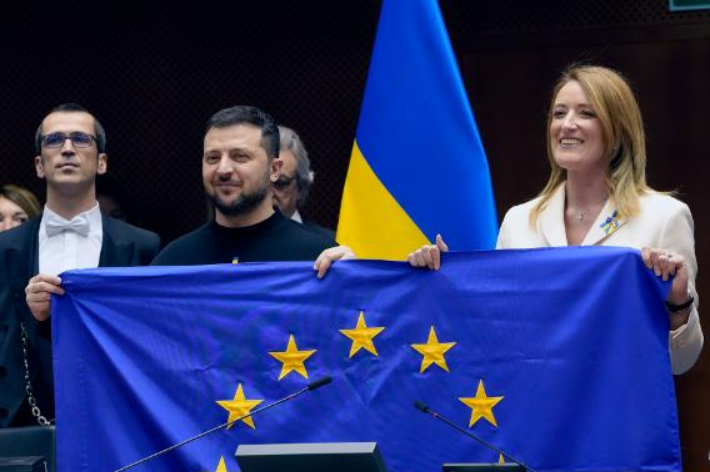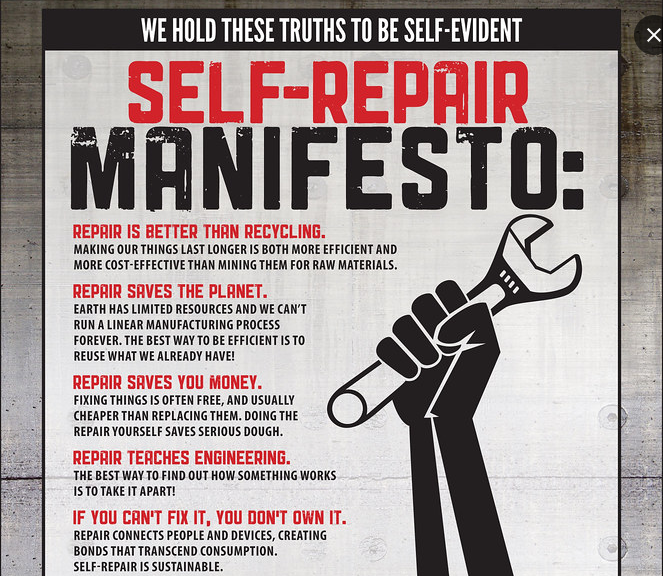


Is State Reorganisation Perpetual?
21 September 2023
European Cities: Governing the Transition to Sustainable and Decarbonised Mobility
21 September 2023The influence of Eurosceptics in the European Parliament
The invasion of Ukraine has once again brought the issue of European Union enlargement to the fore. Prospects are shaky considering that the influx of Eurosceptic MEPs into the European Parliament beginning in 2014 deepened divisions on this issue and caused a shift in the debate towards positions that are more hostile to further enlargement – at least at the rhetoric level.
These are the main findings from an article published by West European Politics by Natasha Wunsch, assistant professor at the Center for European Studies and Comparative Politics (CEE), with Marie-Eve Bélanger (University of Geneva)(1)This article results from a Franco-Swiss collaboration supported by the Germaine de Staël program of Campus France.
In your article, you study the evolution of debates and votes in the European Parliament on enlargement issues between 2009 and 2019. What made you decide to delve into this topic?
Natasha Wunsch: We wanted to know whether and how the rise of Euroscepticism in the European Parliament after the 2014 elections (in which Eurosceptics gained 74 seats, growing their share from 20 to 30 percent) changed the debates and votes on enlargement. The period from 2009 to 2019 was marked by the accession of Croatia in 2013 and discussions about the progress of the remaining candidate countries: Northern Macedonia, Serbia, Montenegro, Kosovo, Bosnia, Albania, as well as Turkey (before the negotiation freeze in 2019).
Several studies had already shown the growing influence of Euroscepticism on European public policies, and the replacement of a left/right divide with a pro/anti-EU divide, but these studies generally focused on Eurosceptics’ favourite themes, such as immigration. With regards to enlargement, however, the dividing lines do not automatically along with party’s positions towards the EU. For example, some pro-European voices, particularly in France, spoke out against too much enlargement, arguing it would jeopardise European unity, while British conservatives supported enlargement as a means to dilute the EU’s federal ambitions.
Then what was your basis for determining the Euroscepticism or Europhilia of parliamentary groups?
N.W. : European political groups have traditionally been classified into three categories(2)Paul Taggart & Aleks Szczerbiak , 2008 “Europeanisation, euroscepticism and party systems: Party‐based euroscepticism in the candidate states of Central and Eastern Europe” in Perspectives on European Politics and Society, Pages 23-41, which we reproduced on the basis of their scores calculated in the Chapel Hill expert survey(3)The Chapel Hill Expert Survey (CHES) is a large-scale survey on the positioning of political parties in European countries, conducted in six waves since 1999. Jan Rovny, Associate Professor at the CEE, is one of the leaders of this project. For more information: pro-Europeans (typically centrist parties, Christian Democrats, the moderate left, and greens), firmly Eurosceptic groups that are outright opposed to the European Union (populist or far-right movements), and moderate Eurosceptics, who agree with the European project but are critical of its implementation (radical left, conservatives, sovereigntists). The two Eurosceptic groups – radicals and moderates – generally have very different positions from one another. However, in this article we show that they converged after 2014 on rejecting enlargement, with moderate Eurosceptics joining the usually more hostile positions of radical Eurosceptics(4)Surprisingly, moderate Eurosceptics have simultaneously become less Eurosceptic from the perspective of the experts interviewed in the CHES survey. Observations related to the issue of enlargement therefore do not appear to be indicative of a general trend.. As a result, the divide between Europhiles and Eurosceptics hardened, leading to a clear polarisation of the European Parliament on this issue.
You also note a general shift towards more distrust of further enlargement, including in Europhile groups – at least in their discourse. How do you explain this?
N.W. : This may seem surprising since Eurosceptics remain in the minority, so they do not have the numbers to reverse European policy trends. That being said, we wanted to test the hypothesis that the large influx of Eurosceptic MEPs in 2014 may have reshaped the discursive environment. This is indeed what we observed. An innovative aspect of our work is that we matched plenary debates (1,250 statements on enlargement issues) with 44 subsequent votes(5)Extracts from the VoteWatch database. Eurosceptic groups, and especially moderate Eurosceptics, underwent the strongest evolution towards discursive positions hostile to enlargement: the latter shifted from rhetorically endorsing enlargement provided that certain criteria were met to a firm rejection on the grounds of identity, joining the radical Eurosceptics. Meanwhile, pro-European groups also adopted more critical discourses towards enlargement, although the trend was less pronounced. We attribute these inflections to pressure from the influx of radical Eurosceptics in 2014, and the hardening of their positions. For Europhiles, maintaining an unconditionally favourable discourse on enlargement became politically costly given the growing weight of a hostile public opinion represented by Eurosceptic MEPs. Other factors may have also come into play – such as the evolution of the candidate countries under discussion – but only marginally so.
But Europhile MEPs still vote in favour of enlargement, sometimes contradicting their discourse. What is the source of this discrepancy between discourse and votes?
N.W. : While the statements and votes of Eurosceptics are increasingly aligned, they are increasingly less so among pro-European groups, whose votes remain overwhelmingly favourable despite more nuanced statements than in the past. This is the third major dynamic observed in our study. Europhiles are adapting their discourse under pressure from Eurosceptic positions, but they do not feel the need to adapt their votes. How can this gap be explained? Probably by the fact that most of the votes during this period pertained to the adoption of technical reports (e.g. ‘Should the Commission’s report on Serbia’s progress be approved?’), and therefore had low stakes, unlike the ratification of accession. We also found that votes are still more strongly determined by group membership than discourses: parliamentarians who deviate from their group’s position might fear political repercussions.
Distribution of positions in the speeches and votes of European political groups in the 7th and 8th legislatures (2009–2014 and 2014–2019).
 Legend : A value of 0 corresponds to total opposition to enlargement and a value of 1 to total support. The Europhile groups are: Party of European Socialists (PES), Alliance of Liberals and Democrats for Europe (ALDE), European People’s Party / European Democrats (EPP), The Greens / Europeans Free Alliance (Green). European Conservatives and Reformists (ECR) and European United Left / Nordic Green Left (GUE-NGL) are moderately Eurosceptic groups. Europe of Freedoms and Direct Democracy (EFDD) and the non-attached members (NI) are radical Eurosceptic groups.
Legend : A value of 0 corresponds to total opposition to enlargement and a value of 1 to total support. The Europhile groups are: Party of European Socialists (PES), Alliance of Liberals and Democrats for Europe (ALDE), European People’s Party / European Democrats (EPP), The Greens / Europeans Free Alliance (Green). European Conservatives and Reformists (ECR) and European United Left / Nordic Green Left (GUE-NGL) are moderately Eurosceptic groups. Europe of Freedoms and Direct Democracy (EFDD) and the non-attached members (NI) are radical Eurosceptic groups.
The share of Eurosceptic MEPs increased again after the 2019 elections, although less so than in 2014. Have the observed trends continued? Has the invasion of Ukraine and granting of candidate status to two new countries – Ukraine and Moldova – changed the picture?
N.W. :Our study ends with the previous legislature, in 2019, so we can only hypothesize. Granting candidacy to Ukraine at a very difficult time of aggression by its Russian neighbour was an eminently political decision. While public opinion was clearly more favourable to enlargement after the invasion of Ukraine, I think that the trends seen with regard to integrating Balkan candidate countries will quickly reappear a fear of integrating states that remain politically and economically underdeveloped relative to current member states.
Interview by Véronique Etienne, academic outreach officer at the CEE
To learn more, read the full article:
Natasha Wunsch et Marie-Eve Belanger. “Between Radicalisation and Discursive Accommodation: Rising Euroscepticism and Legislative Behaviour in the European Parliament ” in West European Politics, May 2023
Natasha Wunsch, an Assistant Professor at Sciences Po and affiliated with the Center for European Studies and Comparative Politics. She focuses on political transformations in EU candidate countries and the impact of democratic regression and illiberal tendencies in some member states on EU-level cooperation. She is also a senior researcher at the Swiss Federal Institute of Technology Zurich (ETH Zurich) where she leads the project on ‘Democratic Regression in Eastern Europe: Sequences, Strategies, Citizens’, a member of the Balkans in Europe Policy Advisory Group, and Chair of the European Consortium for Political Research (ECPR) Standing Group on the European Union.
Notes
| ↑1 | This article results from a Franco-Swiss collaboration supported by the Germaine de Staël program of Campus France. |
|---|---|
| ↑2 | Paul Taggart & Aleks Szczerbiak , 2008 “Europeanisation, euroscepticism and party systems: Party‐based euroscepticism in the candidate states of Central and Eastern Europe” in Perspectives on European Politics and Society, Pages 23-41 |
| ↑3 | The Chapel Hill Expert Survey (CHES) is a large-scale survey on the positioning of political parties in European countries, conducted in six waves since 1999. Jan Rovny, Associate Professor at the CEE, is one of the leaders of this project. For more information |
| ↑4 | Surprisingly, moderate Eurosceptics have simultaneously become less Eurosceptic from the perspective of the experts interviewed in the CHES survey. Observations related to the issue of enlargement therefore do not appear to be indicative of a general trend. |
| ↑5 | Extracts from the VoteWatch database |



